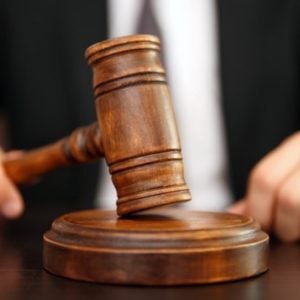
"Everyone who turns to us frees himself from thinking about his question and gets a result, since we value the most important resource - your time."
Senior partner
Lawyer, specializing in real estate, corporate, financial, tax, civil and contract law, as well as litigation.
APPLICATION OF THE COURTS OF FREEDOMS FROM THE SELF-GOVERNMENT AND THE RIGHT TO NOT CERTIFY THEIR RELATIVES

Today, violation of the principle of freedom from self-disclosure and the right not to testify against close relatives and family members is a fairly common case in judicial practice. This has been repeatedly pointed out not only by national courts but also by the European Court of Human Rights.
Thus, the ECtHR points to at least 3 types of situations of violation of the freedom of the accused not to testify against himself:
1) when the obligation to testify under the law under the threat of sanction (an example is the case of Saunders v. The United Kingdom), or the person is obliged to prove his innocence - for the "reverse" burden of proof;
2) when coercion is applied to a person, pressure, which can be both physical (example - the case of "Jalloch v. Germany") and psychological (example - the case "Gefgen v. Germany");
3) when coercion is applied to a person fraudulently using covert investigative techniques (for example, Allan v. The United Kingdom).
Thus, the case of Nechyporuk and Yonkalo v. Ukraine alleges a violation of the principle of freedom from self-disclosure and the right not to testify against close relatives and family members, as the applicant's conviction was largely based on the defendant's testimony. the first were obtained in the absence of a lawyer, and the second as a result of prohibited torture.
In Funke v. France, the ECtHR explained that "right to silence" means not only freedom from incriminating evidence, but also the right not to be prosecuted for refusing to provide other evidence to prove one's guilt. It is established in the case that the customs services, not being able to obtain the documents themselves, the existence of which was only a presumption, tried to force the applicant to provide them.
The opposite is the case in Saunders v. The United Kingdom, which states that the right not to testify against oneself does not apply to the use in criminal proceedings of materials which may be obtained from a coercive accused, materials which exist independently of the suspect's will, such as documents obtained on the basis of a warrant, forced breathing into an alcohol-respiratory tube, blood, urine, skin samples for DNA analysis, through available legal procedures, such as temporary access to things and documents.
In order to establish the violation of the freedom of self-disclosure and the right not to testify against close relatives and family members, the ECtHR draws attention, in particular, to the nature and degree of coercion used in obtaining evidence; the importance of the public interest in the investigation of a criminal offense and punishment for its commission; availability of appropriate guarantees in the applicable procedure; use of materials obtained in this way.
Compliance with this principle is also addressed in national legislation. Thus, the Supreme Court of Ukraine in its ruling of December 5, 2011 noted that the reliability of evidence will be undermined if it is obtained in violation of the right to silence and the privilege against self-disclosure.
As to the facts of the case, the Court recalled that L.M. gave his confession during the interrogation as a witness and, unlike the suspect or accused, who had the right to remain silent, the witness was obliged to report everything known to him under the threat of criminal punishment.
Given that LM's confessions, given by him in the absence of procedural guarantees against self-disclosure, were used to establish facts which were important for the qualification of the applicant's actions, the Court found that the rights of the defense were limited, undermining the fairness of the proceedings as a whole. .
Local courts also pay attention to the principle of freedom from self-disclosure. For example, the Petropavlovsk District Court of Dnipropetrovsk region stated in its verdict that it could not take into account the protocol of the investigative experiment dated 05.02.2016, because, in the opinion of the court, this investigative action was conducted in violation of the right of these persons not to testify against themselves.
A similar decision was made by the Kozeletsky District Court of Chernihiv region: oneself".
The Vinnytsia City Court of the Vinnytsia Region noted that Article 18 of the CPC of Ukraine guarantees everyone the freedom from self-disclosure and the right not to testify against close relatives and family members. As can be seen from the materials of the criminal proceedings, which were submitted to the court by its parties, the accusation is based solely on the admission of his guilt in committing the crime incriminated to him. No objective evidence was provided that the latter had been duly notified of the existence of the judgment and the enforcement proceedings.
Thus, we see that in the decisions made by the courts, verification of compliance with this principle is one of the central places.
Calculate the price of assistance:
1 question
Have other lawyers handled your case?
2 question
Are you in Kyiv or Kyiv region?
3 question
Do you need legal assistance urgently?
Other articles on this topic:
call back
during the day



